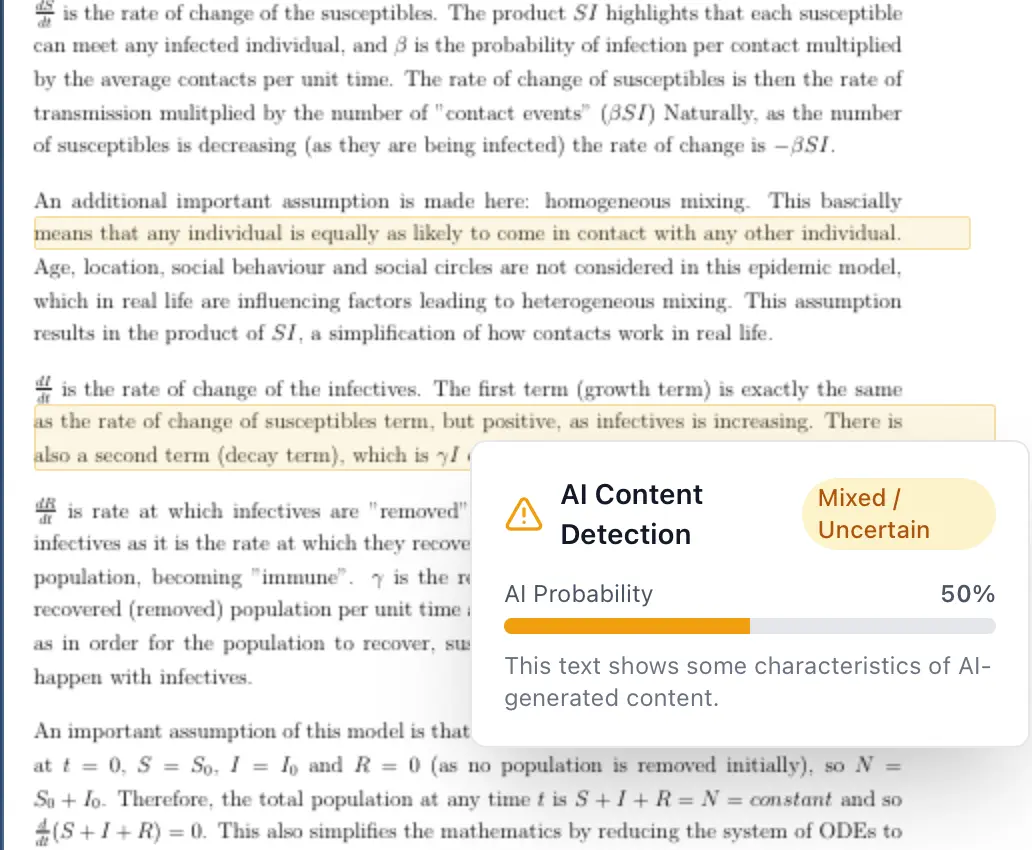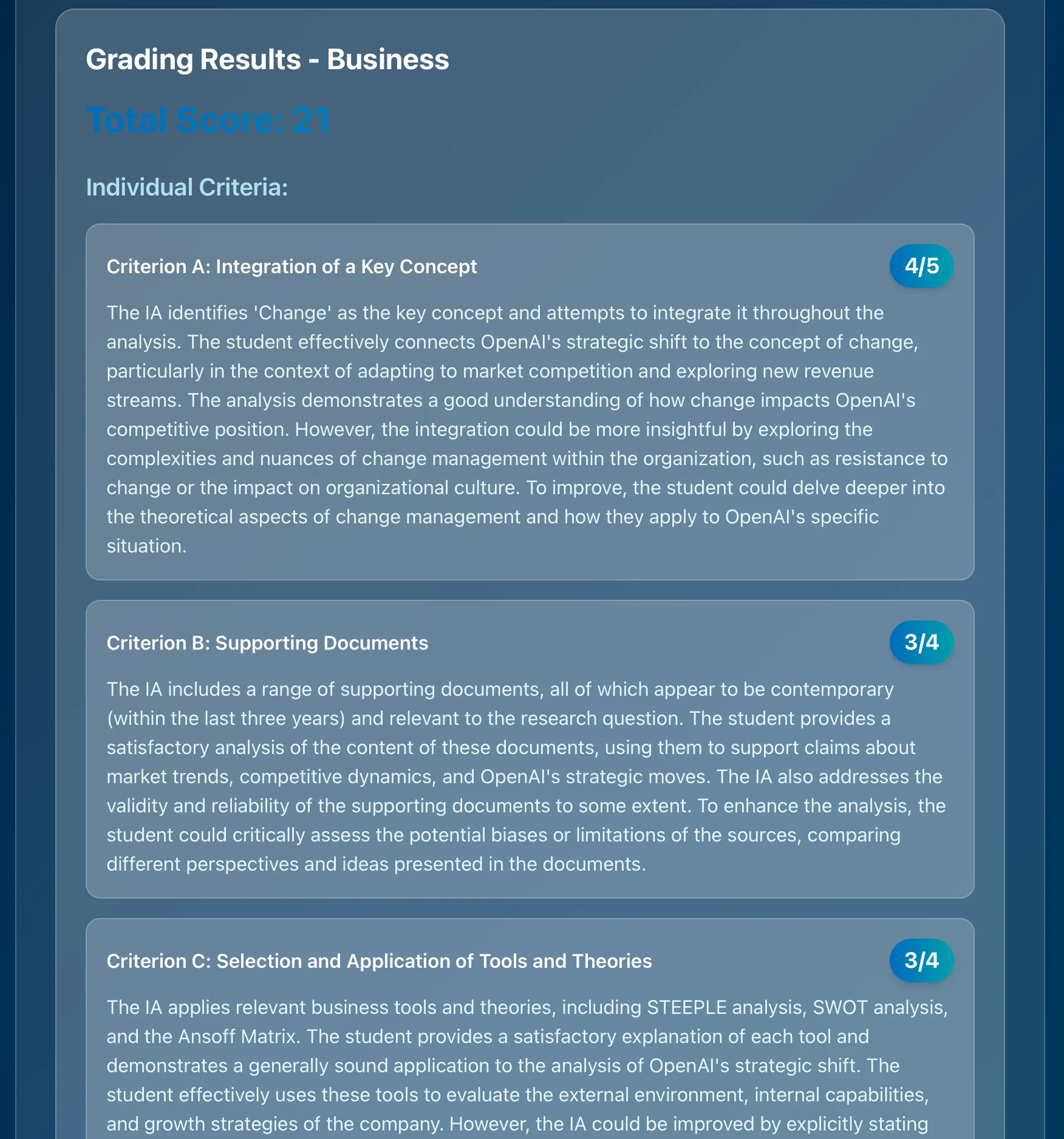How to Manage Exam Stress: Tips for IB Students
The International Baccalaureate (IB) Diploma Programme is renowned for its rigorous curriculum and challenging assessments. As an IB student, you're likely familiar with the pressure that comes with internal assessments (IAs), extended essays, and, of course, those crucial final exams. Managing exam stress is paramount to your success. This guide provides actionable tips and strategies to help you navigate the IB exam period with confidence, reduce anxiety, and perform at your best. We'll cover everything from effective study techniques to mindfulness practices, ensuring you're well-equipped to tackle the challenges ahead.
Understanding IB Exam Stress
Exam stress is a common experience, especially for IB students. The pressure to perform well, coupled with the demanding workload, can lead to anxiety, burnout, and decreased performance. Understanding the root causes of your stress is the first step towards managing it effectively.
What Causes Exam Stress in IB Students?
Several factors contribute to exam stress in the IB program:
- High Expectations: The IB diploma is highly regarded, and students often feel immense pressure to achieve top marks.
- Extensive Curriculum: The breadth and depth of the IB curriculum can be overwhelming.
- Time Management: Balancing multiple subjects, IAs, and extracurricular activities requires excellent time management skills.
- Fear of Failure: The fear of not meeting expectations or failing to achieve the diploma can be a significant source of stress.
- Lack of Preparation: Feeling unprepared for exams can exacerbate anxiety.
Recognizing the Symptoms of Exam Stress
It's crucial to recognize the signs of exam stress early on. Common symptoms include:
- Physical Symptoms: Headaches, stomachaches, fatigue, insomnia, changes in appetite.
- Emotional Symptoms: Anxiety, irritability, mood swings, difficulty concentrating, feeling overwhelmed.
- Behavioral Symptoms: Procrastination, social withdrawal, increased reliance on caffeine or other stimulants.
If you experience any of these symptoms, it's essential to take steps to manage your stress levels.
Struggling with IB Assessments?
Get instant, detailed feedback on your work with AI that understands IB criteria.

Effective Study Strategies for Reducing Exam Stress
A well-structured study plan is your best defense against exam stress. Here are some effective strategies to help you prepare:
1. Create a Realistic Study Schedule
- Prioritize Subjects: Identify subjects you find most challenging or those with upcoming deadlines. Allocate more time to these areas.
- Break Down Tasks: Divide large topics into smaller, more manageable chunks. This makes the workload seem less daunting.
- Use a Planner: Utilize a physical or digital planner to schedule study sessions, assignments, and breaks.
- Be Realistic: Don't try to cram too much into one day. Allow for flexibility and unexpected events.
Example: Instead of planning to "study history" for three hours, break it down into "review the causes of World War I" for one hour, "practice essay writing on the Treaty of Versailles" for one hour, and "review key figures of the Russian Revolution" for one hour.
2. Active Recall and Spaced Repetition
- Active Recall: Instead of passively rereading notes, actively try to recall information from memory. Use flashcards, practice questions, or teach the material to someone else.
- Spaced Repetition: Review material at increasing intervals. This helps to reinforce learning and improve long-term retention.
Example: After learning about a concept in biology, test yourself on it later that day, then again a few days later, and then again a week later.
3. Utilize Different Study Techniques
- Mind Mapping: Create visual representations of concepts and their relationships.
- The Feynman Technique: Explain a concept in simple terms as if you were teaching it to someone else.
- Practice Questions: Solve past papers and practice questions to familiarize yourself with the exam format and question types.
- Group Study: Collaborate with classmates to discuss concepts, share notes, and quiz each other.
Example: For your History IA, use mind mapping to organize your research and arguments. For your Math exam, focus on solving practice problems under timed conditions.
4. Optimize Your Study Environment
- Find a Quiet Space: Choose a study area free from distractions.
- Minimize Interruptions: Turn off notifications on your phone and computer.
- Ensure Good Lighting: Adequate lighting can reduce eye strain and improve focus.
- Maintain a Comfortable Temperature: A comfortable temperature can help you stay alert and focused.
Mindfulness and Relaxation Techniques
Incorporating mindfulness and relaxation techniques into your routine can significantly reduce exam stress.
1. Deep Breathing Exercises
- Diaphragmatic Breathing: Practice deep, slow breaths from your diaphragm. This can help to calm your nervous system and reduce anxiety.
- Box Breathing: Inhale for four seconds, hold for four seconds, exhale for four seconds, and hold for four seconds. Repeat this cycle several times.
2. Meditation and Mindfulness
- Guided Meditation: Use guided meditation apps or videos to practice mindfulness and relaxation.
- Mindful Walking: Pay attention to your surroundings and the sensations in your body while walking.
- Body Scan Meditation: Focus on different parts of your body, noticing any sensations without judgment.
3. Progressive Muscle Relaxation
- Tense and Release: Tense and release different muscle groups in your body, starting with your toes and working your way up to your head. This can help to release physical tension.
4. Yoga and Stretching
- Yoga Poses: Practice yoga poses that promote relaxation and reduce stress, such as child's pose, downward-facing dog, and savasana.
- Stretching: Simple stretches can help to release tension in your muscles and improve circulation.
Maintaining a Healthy Lifestyle
A healthy lifestyle is crucial for managing exam stress and maintaining overall well-being.
1. Prioritize Sleep
- Establish a Sleep Schedule: Go to bed and wake up at the same time each day, even on weekends.
- Create a Relaxing Bedtime Routine: Engage in calming activities before bed, such as reading or taking a warm bath.
- Avoid Caffeine and Alcohol Before Bed: These substances can interfere with sleep.
- Ensure a Dark, Quiet, and Cool Sleep Environment: Optimize your bedroom for sleep.
2. Eat a Balanced Diet
- Nutrient-Rich Foods: Focus on eating fruits, vegetables, whole grains, and lean protein.
- Limit Processed Foods, Sugar, and Caffeine: These can exacerbate anxiety and disrupt sleep.
- Stay Hydrated: Drink plenty of water throughout the day.
- Eat Regular Meals: Avoid skipping meals, as this can lead to fluctuations in blood sugar levels and increased stress.
3. Exercise Regularly
- Aerobic Exercise: Engage in activities such as running, swimming, or cycling to improve mood and reduce stress.
- Strength Training: Lift weights or do bodyweight exercises to build strength and improve overall fitness.
- Outdoor Activities: Spend time outdoors in nature to boost mood and reduce stress.
4. Social Connection
- Spend Time with Friends and Family: Social interaction can provide emotional support and reduce feelings of isolation.
- Join a Club or Activity: Engage in activities you enjoy to connect with like-minded individuals.
- Talk to Someone You Trust: Share your feelings and concerns with a friend, family member, or counselor.
Pro Tip: Get AI-Powered Grading
Stop second-guessing your grades. Get instant feedback aligned with official IB rubrics.

Common Challenges/Mistakes Section
Many IB students fall into common traps that exacerbate their exam stress. Here's how to avoid them:
- Procrastination: Avoid delaying studying until the last minute. Break down tasks and start early.
- Perfectionism: Striving for perfection can lead to anxiety and burnout. Focus on doing your best, not being perfect.
- Comparing Yourself to Others: Focus on your own progress and achievements, rather than comparing yourself to your classmates.
- Ignoring Your Needs: Don't neglect your physical and emotional needs. Prioritize sleep, nutrition, exercise, and social connection.
- Isolating Yourself: Don't withdraw from social activities and support networks. Reach out to friends, family, or counselors for help.
Advanced Tips/Strategies Section
For those seeking to elevate their stress management game, consider these advanced strategies:
- Cognitive Restructuring: Challenge negative thoughts and replace them with more positive and realistic ones.
- Visualization: Visualize yourself succeeding in your exams. This can boost confidence and reduce anxiety.
- Time Management Techniques: Explore advanced time management techniques such as the Pomodoro Technique or the Eisenhower Matrix.
- Seek Professional Help: If you're struggling to manage your stress on your own, consider seeking help from a therapist or counselor.
- Mindfulness-Based Stress Reduction (MBSR): Consider taking an MBSR course to learn advanced mindfulness techniques for stress management.
Technology and Modern Assessment Section
Technology is transforming the way IB students learn and are assessed. AI-powered tools are becoming increasingly valuable in providing personalized feedback and streamlining the grading process.
One such tool is Marksy, an AI grading assistant specifically designed for the International Baccalaureate. Marksy provides instant, accurate, and detailed feedback on student work based on official IB rubrics. This helps students understand exactly how to improve their work and reduces the stress associated with uncertainty about their performance.
For teachers, Marksy saves significant time by automating the grading process and providing consistent, rubric-aligned scoring. The detailed criterion-by-criterion feedback helps students identify their strengths and weaknesses, leading to more effective learning. Marksy ensures fairness and accuracy by adhering to official IB criteria, reducing the potential for bias in assessment. By providing clear and actionable feedback, Marksy helps students focus on improvement rather than dwelling on grades, ultimately reducing exam stress.
The use of AI in IB assessment is not about replacing teachers but about augmenting their capabilities and providing students with more personalized and effective support.
Conclusion with Clear Next Steps
Managing exam stress is an ongoing process that requires a combination of effective study strategies, mindfulness techniques, a healthy lifestyle, and the right tools. By implementing the tips and strategies outlined in this guide, you can reduce anxiety, improve focus, and perform at your best in your IB exams. Remember to prioritize your well-being and seek help when needed.
Next Steps:
- Create a Study Schedule: Develop a realistic and detailed study schedule that incorporates active recall and spaced repetition.
- Practice Mindfulness: Incorporate deep breathing exercises and meditation into your daily routine.
- Prioritize Sleep and Nutrition: Ensure you're getting enough sleep and eating a balanced diet.
- Explore AI-Powered Tools: Try Marksy for free to experience how AI grading assistance can streamline your learning and assessment process, providing you with detailed feedback and saving you valuable time. See how it aligns with official IB rubrics and helps you understand exactly how to improve your work. This can significantly reduce stress and boost your confidence as you approach your IB exams.
By taking these steps, you'll be well-equipped to navigate the challenges of the IB program and achieve your academic goals. Good luck!